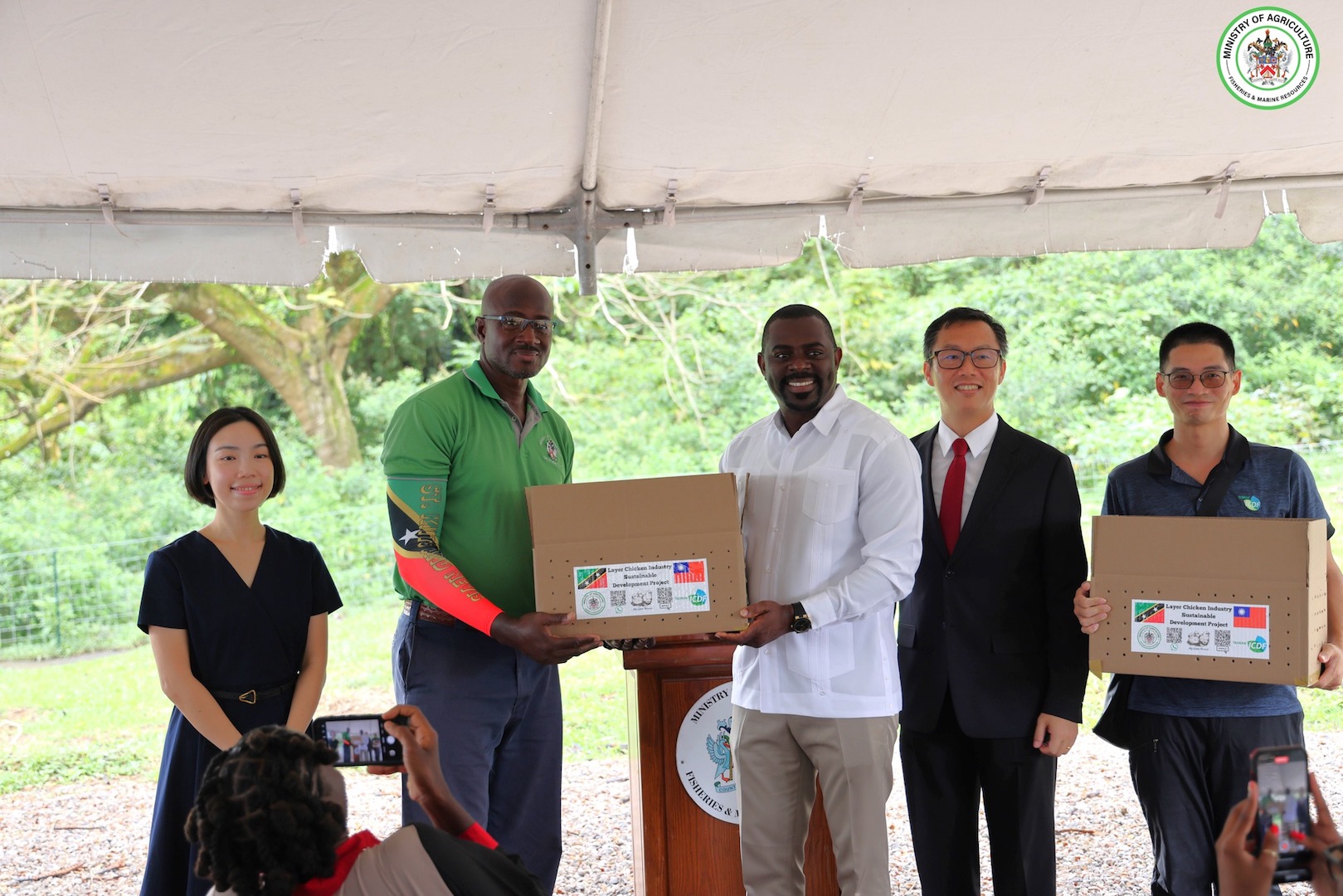St. Kitts’ Central School Farm Enhances Student Nutrition with First Locally Sourced Layer Chicks
The partnership between the Taiwan International Cooperation and Development Fund (ICDF) and the Ministry of Agriculture, Fisheries, and Marine Resources of St. Kitts and Nevis has yielded a significant advancement in both school nutrition and agricultural education. The Layer Chicken Industry Sustainable Development Project, a product of this collaboration, has delivered its first batch of locally hatched chicks to the Central School Farm, a government-operated agricultural hub pivotal to supplying fresh produce to the public school system. This initiative marks a critical step towards enhancing the quality of school meals and fostering agricultural knowledge among students.
The Central School Farm, a key player in the local agricultural landscape, plays a vital role in providing fresh fruits, vegetables, and eggs to schools across St. Kitts and Nevis. The introduction of these locally hatched chicks strengthens the farm’s capacity to supply a consistent stream of fresh, high-quality eggs directly to school kitchens. This not only reduces the nation’s dependence on imported eggs but also ensures that students have access to more nutritious meals sourced directly from their local community. This shift towards local production aligns with the broader goals of promoting food security and supporting local farmers within the Federation.
Mr. Lindbergh Belle, Manager of the Government Central School Farm, emphasized the multifaceted benefits of this initiative during an interview with the Ministry of Agriculture’s Media Unit. He highlighted the dual purpose served by the newly arrived chicks: providing a consistent source of eggs for the national school meals program and serving as a practical learning tool for students enrolled in the CXC agricultural program. This integration of practical experience into the curriculum allows students to gain firsthand knowledge of modern farming practices, contributing to the development of future generations of skilled agricultural professionals in St. Kitts.
The introduction of the chicks into the Central School Farm curriculum directly aligns with the School-Based Assessment (SBA) component of the CXC agricultural program. This hands-on experience provides students with invaluable practical skills and knowledge, preparing them for potential careers in the agricultural sector. This initiative underscores the government’s commitment to sustainable development and its focus on nurturing the next generation of local farmers. By providing students with this practical training, the program aims to strengthen the agricultural workforce and contribute to the overall economic growth of the nation.
Beyond the educational benefits, the arrival of the chicks signifies a significant improvement in the nutritional quality of school meals. By providing a consistent supply of fresh, locally sourced eggs, the program ensures that students receive more nutritious meals. This focus on healthy eating habits contributes to the overall well-being of students and supports their academic performance. The ability to provide fresh, locally sourced eggs also reduces the reliance on imported products, thereby contributing to the local economy and reducing the environmental impact associated with transportation.
The Layer Chicken Industry Sustainable Development Project exemplifies a collaborative approach to addressing critical issues within the agricultural sector and the education system. The partnership between the Taiwan ICDF and the Ministry of Agriculture has facilitated the development of a sustainable solution that simultaneously enhances food security, promotes nutritional health among students, and provides valuable educational opportunities for aspiring farmers. This project underscores the power of collaboration in achieving sustainable development goals and creating a positive impact on the lives of citizens. The initiative also strengthens the ties between St. Kitts and Nevis and Taiwan, showcasing the benefits of international cooperation in fostering development and innovation. The project’s success highlights the importance of investing in local agriculture and supporting educational programs that equip future generations with the skills necessary to contribute to a thriving and sustainable agricultural sector.
Share this content:












Post Comment